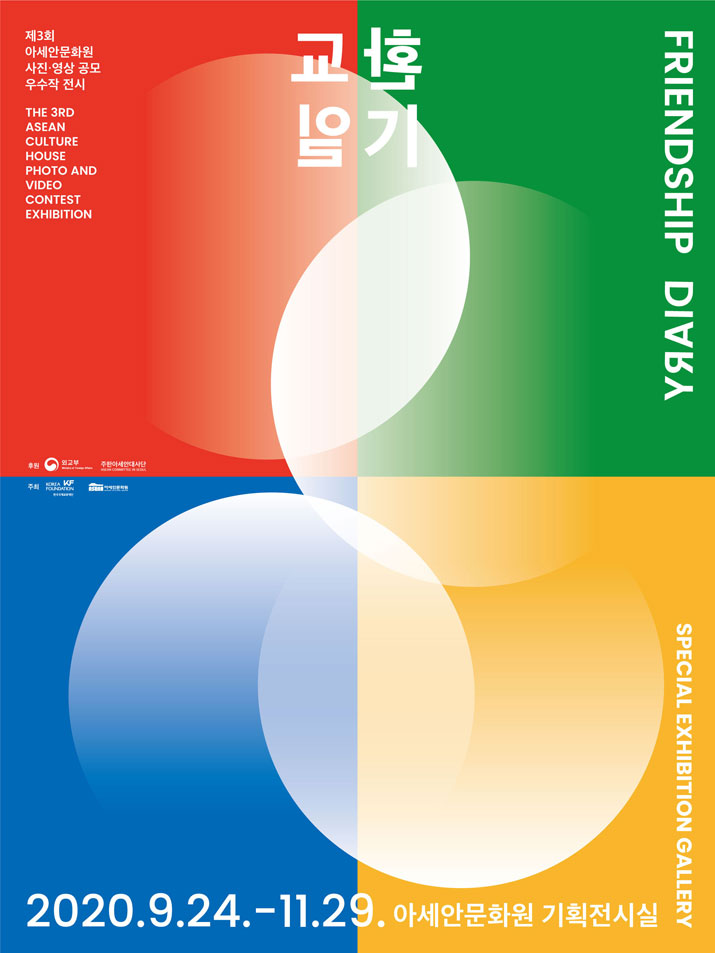
Period
September 24, 2020 – November 29, 2020
Venue
Special Exhibition Gallery, ASEAN Culture House 1F
Host
The Korea Foundation
Organizer
ASEAN Culture Houe
Support
Ministry of Foreign Affairs, ASEAN Committee in Seoul
Admission is free of charge
Schedule
- Tue ~ Fri: 10:00~18:00
- Sat ~ Sun: 10:00~19:00
- Cloesed on Mondays and National Holidays
ASEAN Culture House
162, Jwadong-ro, Haeundae-gu, Busan
Tel. 051-775-2024
Fax. 051-775-2020
www.ach.or.kr
Program
The third edition of the ASEAN Culture House Photo and Video Contest received many submissions. The contest received a total of 750 submissions for the photo and video sections from participants hailing from 15 countries during the 54 days (March 2 – April 24, 2019) that the contest was held. The exhibition, Friendship Diary, features the 77 photos and 17 videos that were selected as finalists by an expert screening panel and online vote that was open to the general public starting this year.
A friendship diary is a diary that is exchanged between close friends. This exhibition encourages the formation of such close friendship bonds between Korea and the ten ASEAN countries. Featured works show the process by which we get to know others and build relationships of trust through everyday events—which may be special, trivial, or small or large in scale. The introductions for each of the exhibition’s six categories (Greeting/Being Face-to-Face; Learning; Games; Work and Relaxation; Festival/Ritual; Travel) were written by Soo-woo Kim, a Korean poet who operates a creative writing community in Busan. The introductions enhance the beauty of the people and landscapes in the photos with the power of literary language, encouraging visitors to carefully observe the lives and environment of Korean and ASEAN residents.
The exhibition is also graced by the efforts of visual artists who have long been interested in the stories of ASEAN immigrants to Korea. Dong-keun Lee focuses on the life landscapes of students studying abroad students and marriage migrants who are putting down roots in a country with an unfamiliar language and culture. In-ji Hwang poses questions to and lends a sympathetic ear to migrant workers and teens who grew up in multicultural families.
In the run-up to the contest, some might have gone on trips to the ASEAN region and others might have dug up forgotten photos and videos from smart phones and hard disks to relive those memories. The contest, contrary to previous years, was conducted under multiple unforeseen constraints such as the fact that the COVID-19 pandemic has made overseas travel difficult. This, however, did nothing to dampen the passion of participants in capturing the special moments of everyday moments in both Korea and the ASEAN region to create works of art. The ASEAN Culture House hopes that this exhibition can be the first step of a contemplation of ways in which people from Korea, ASEAN, and—ultimately—all of Asia can communicate flexibly, appreciate each other’s differences, and coexist in a genuinely peaceful manner.
ASEAN Culture House, The Korea Foundation